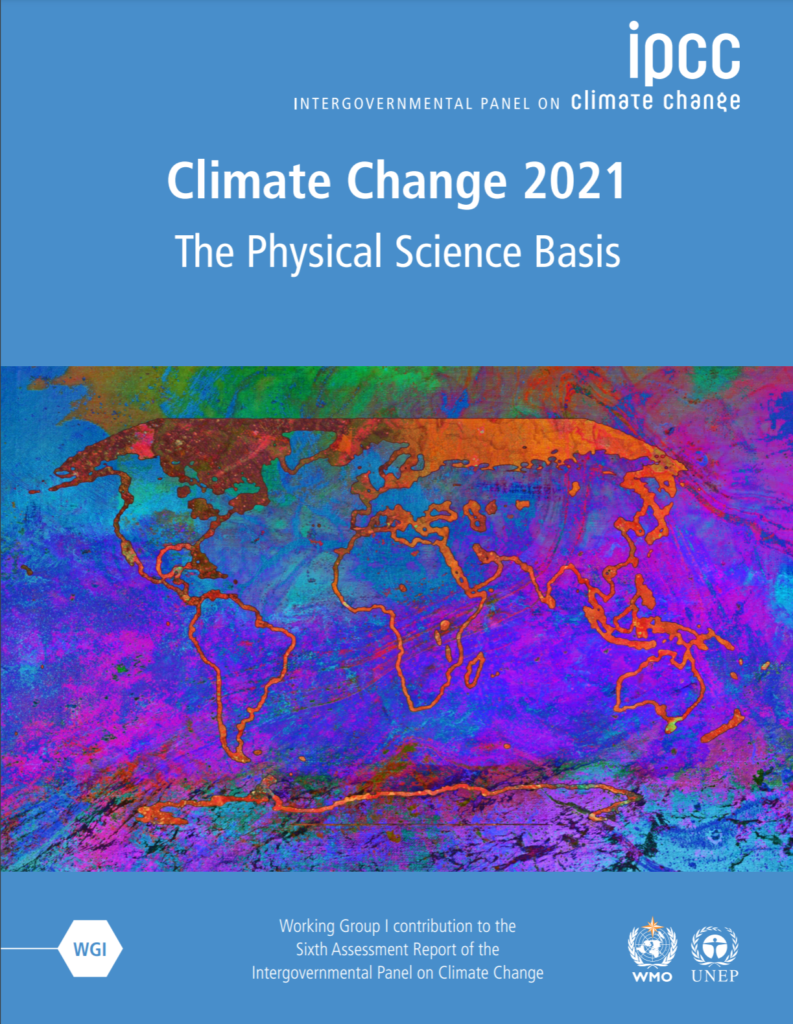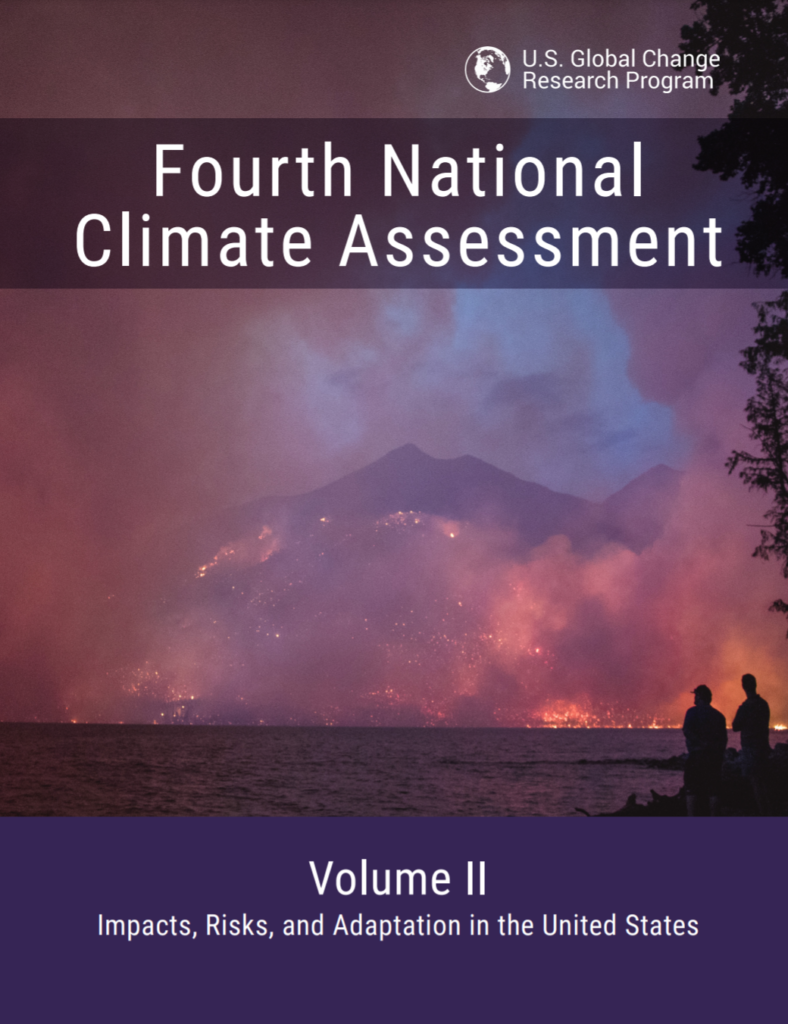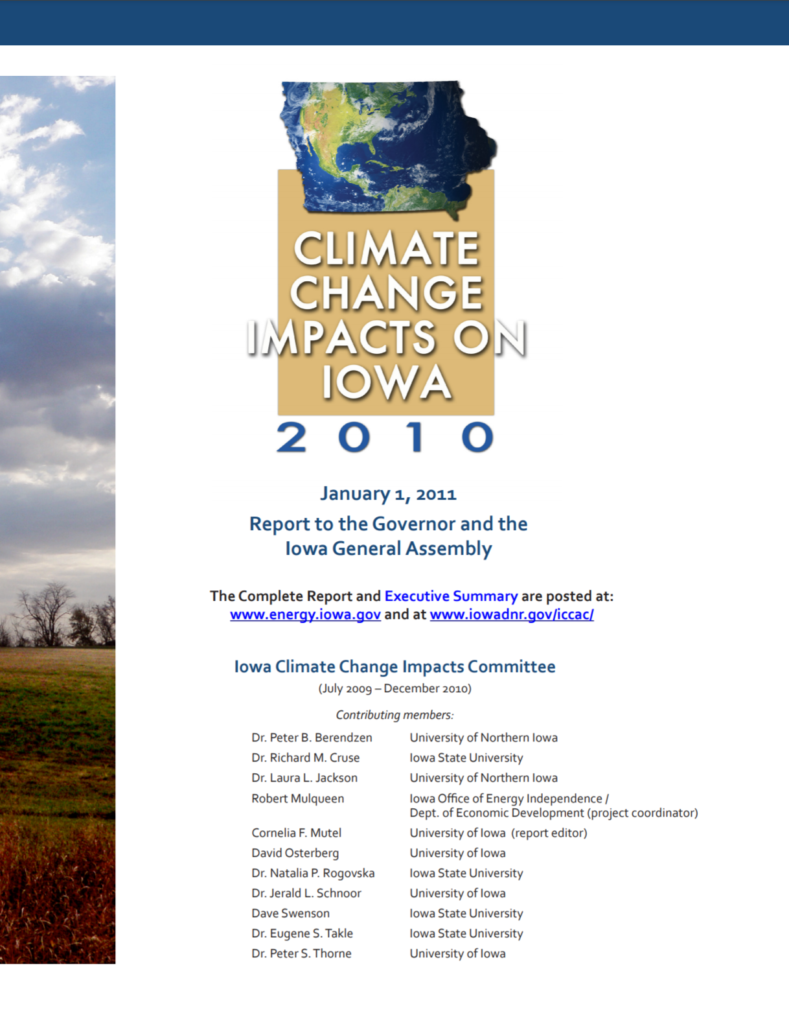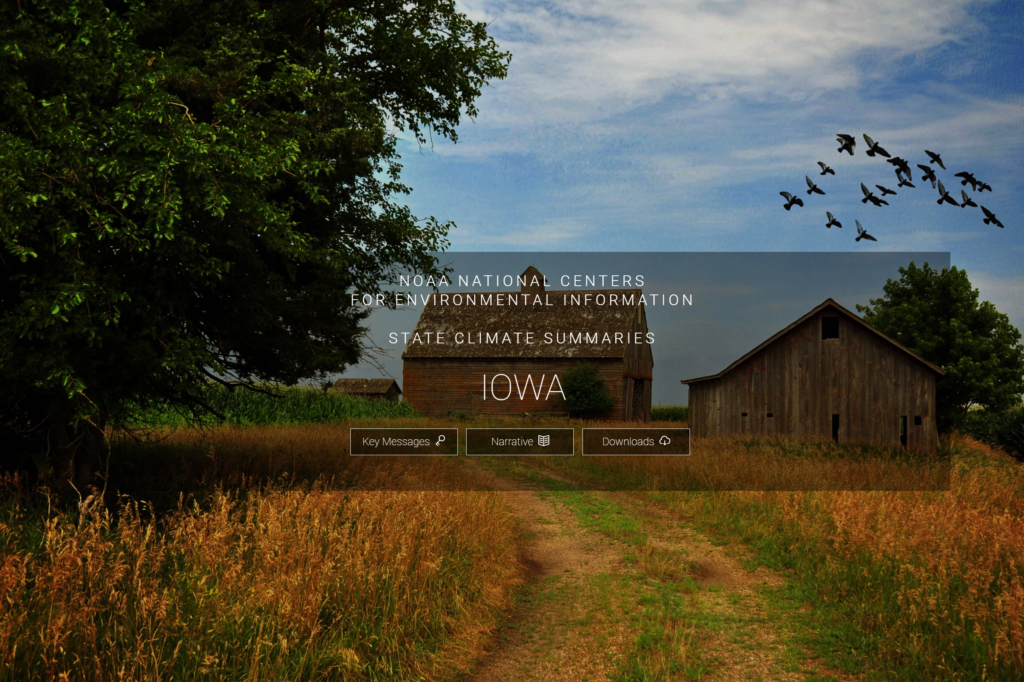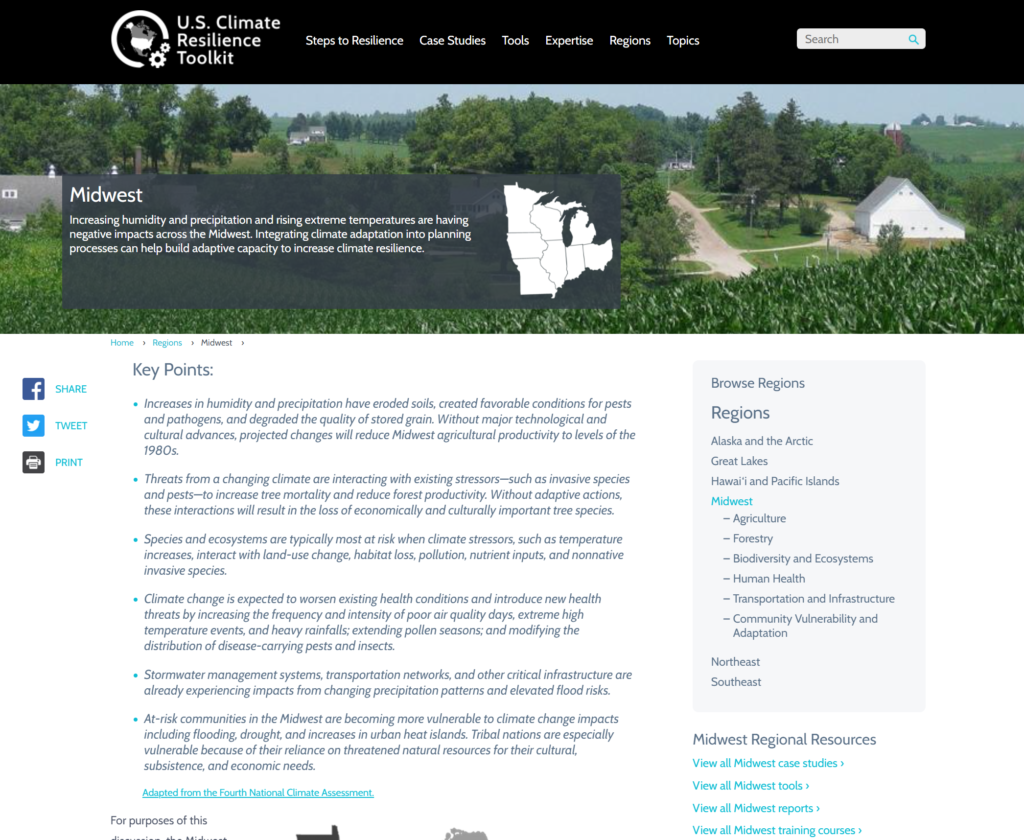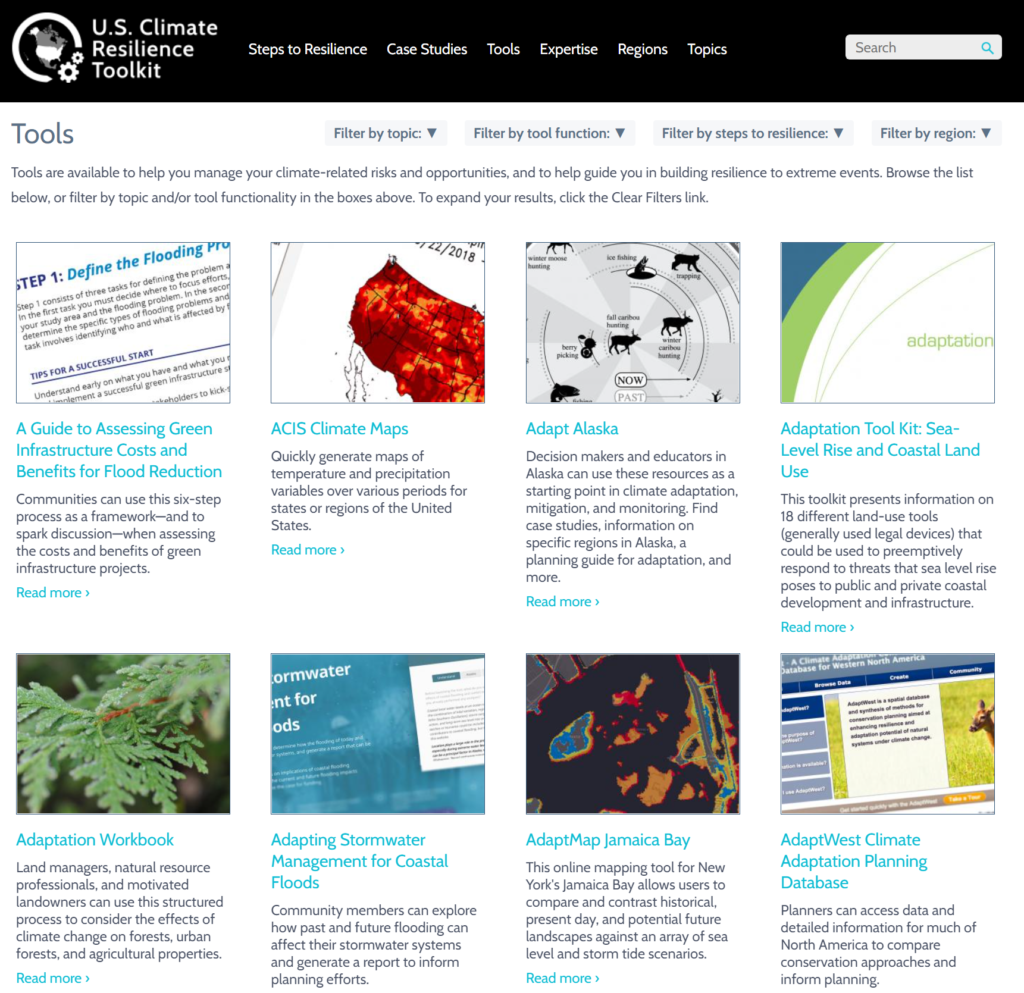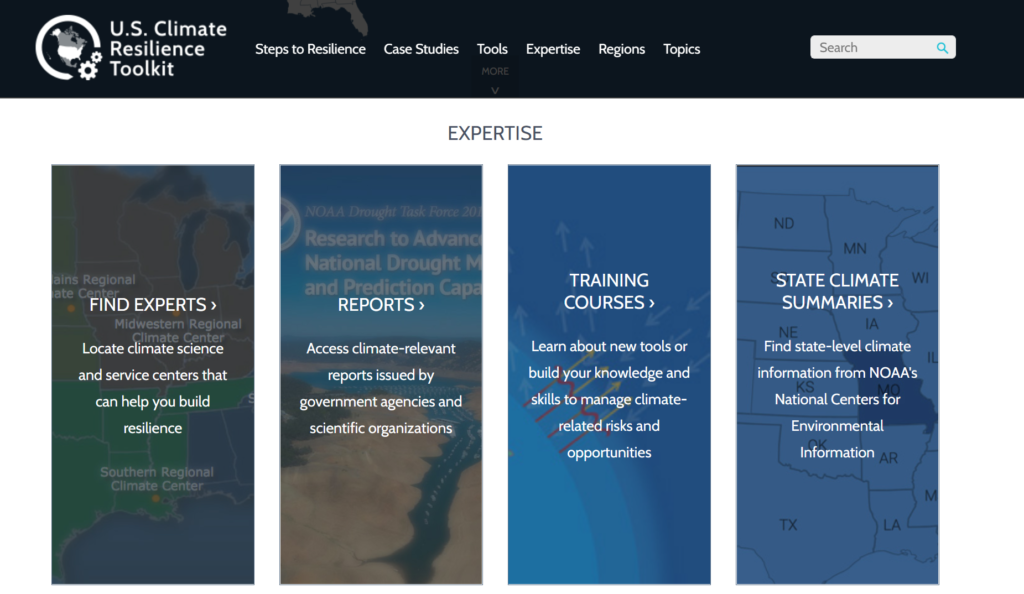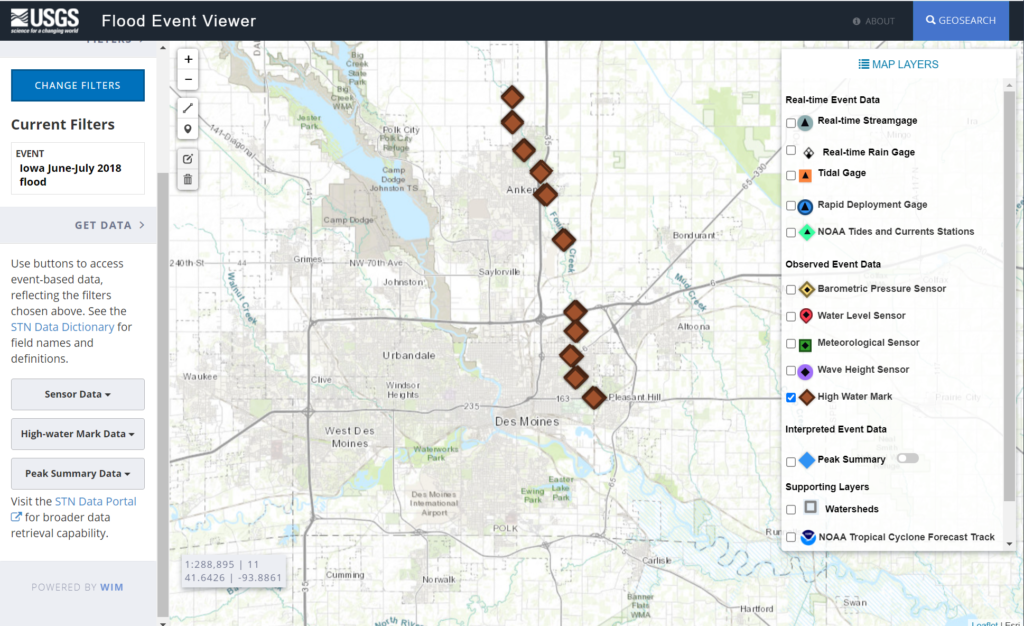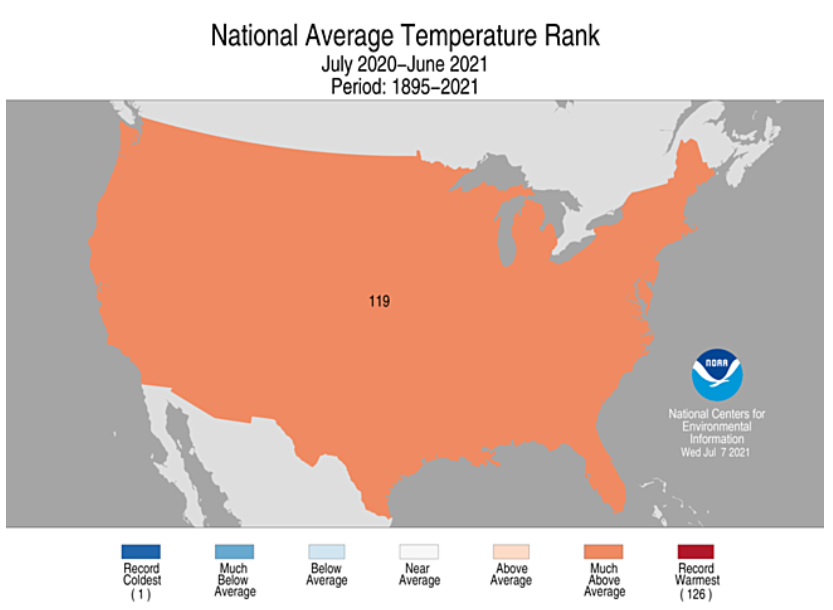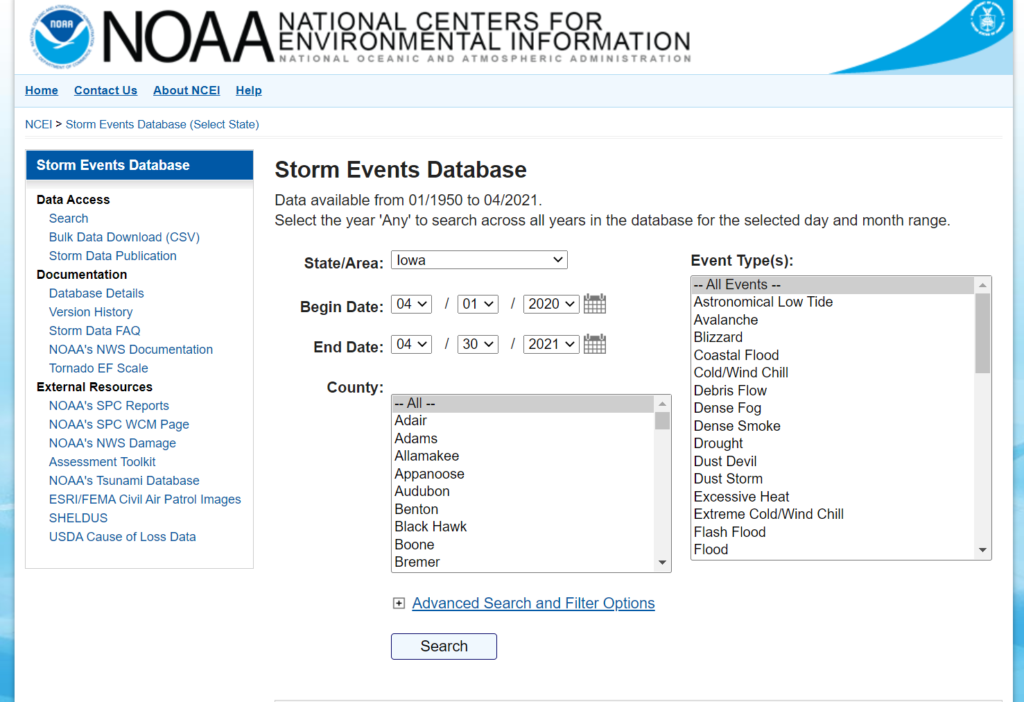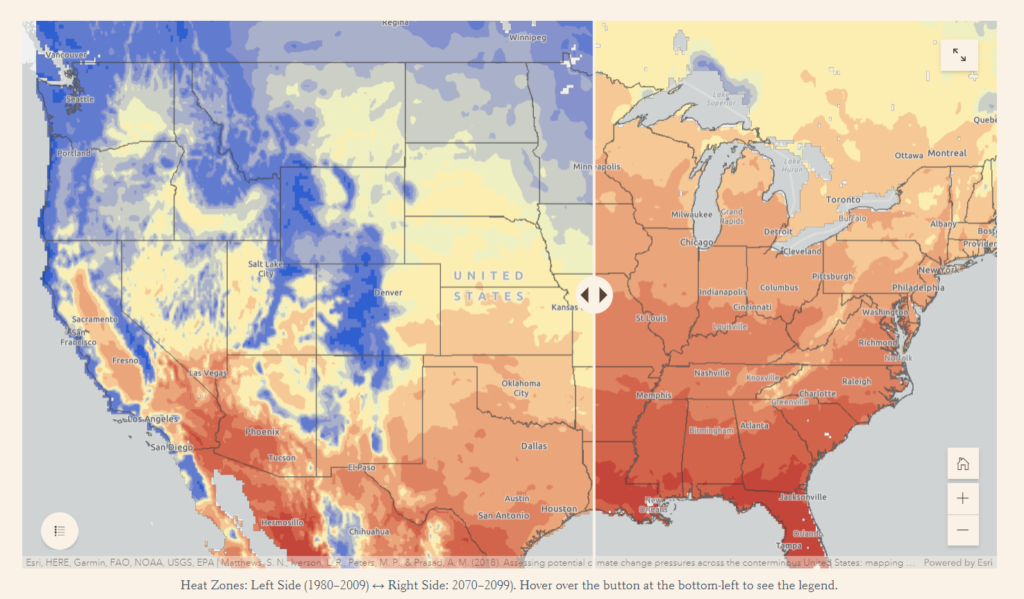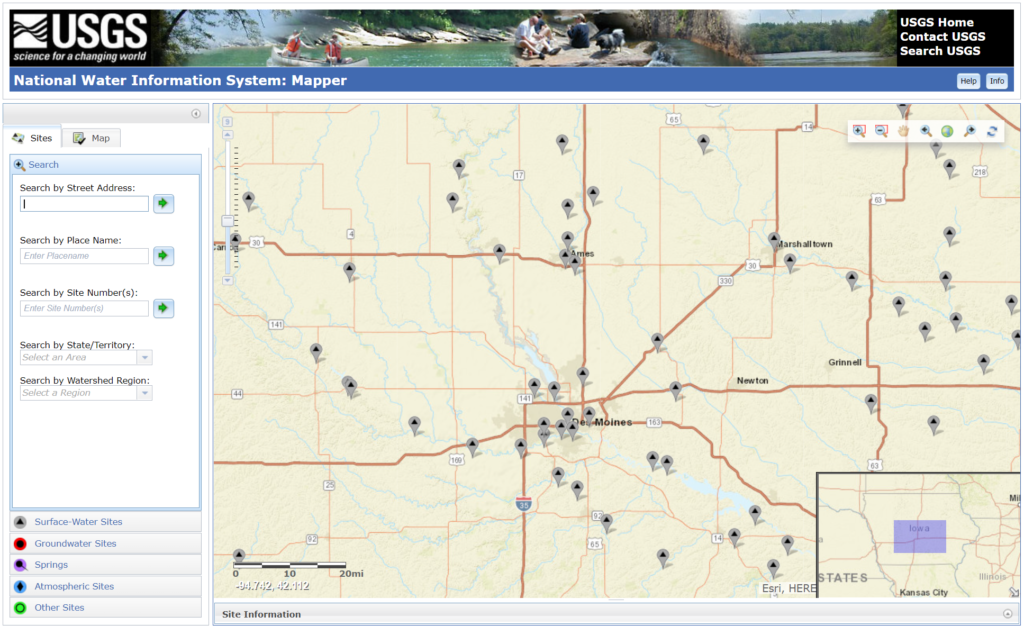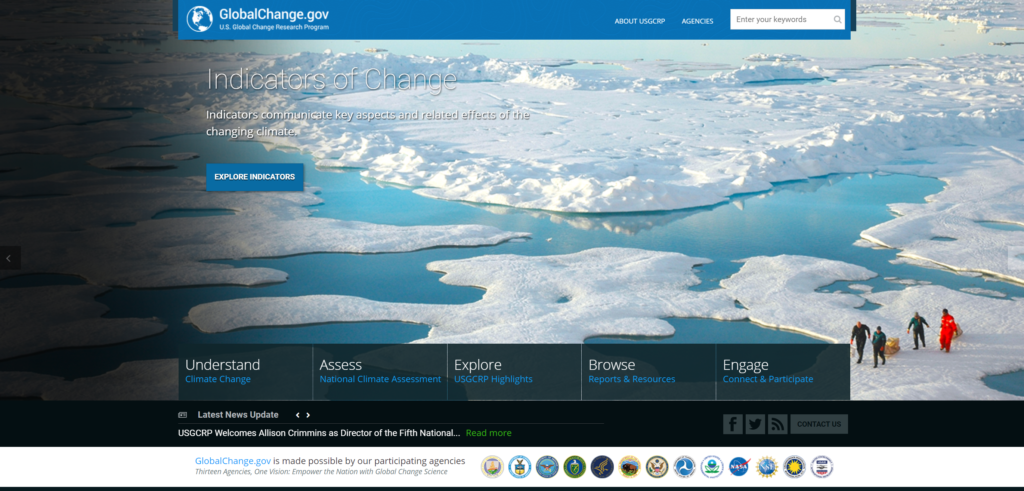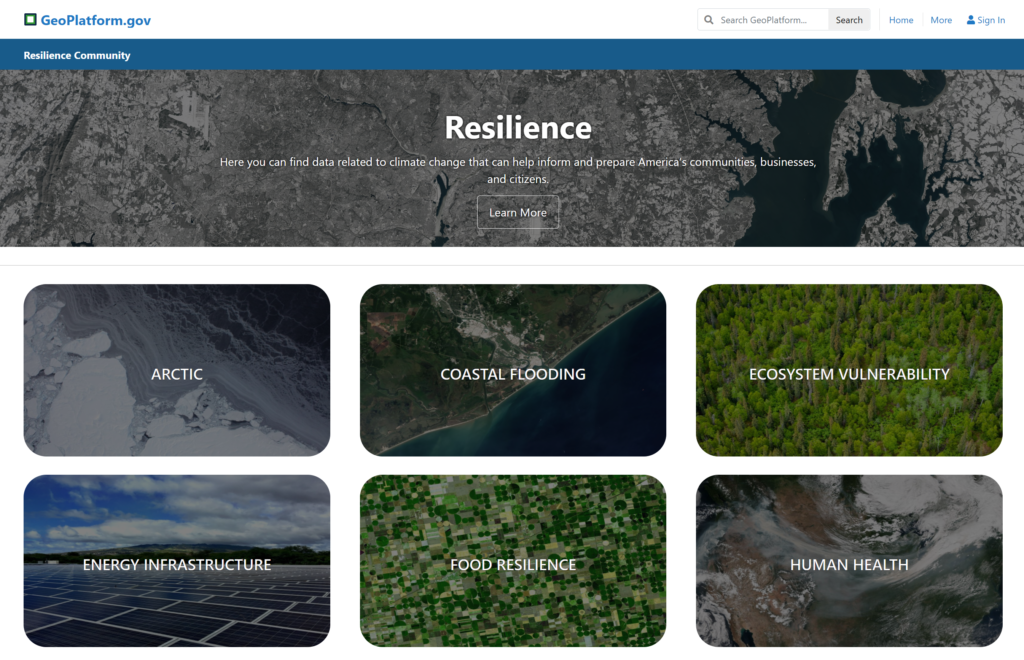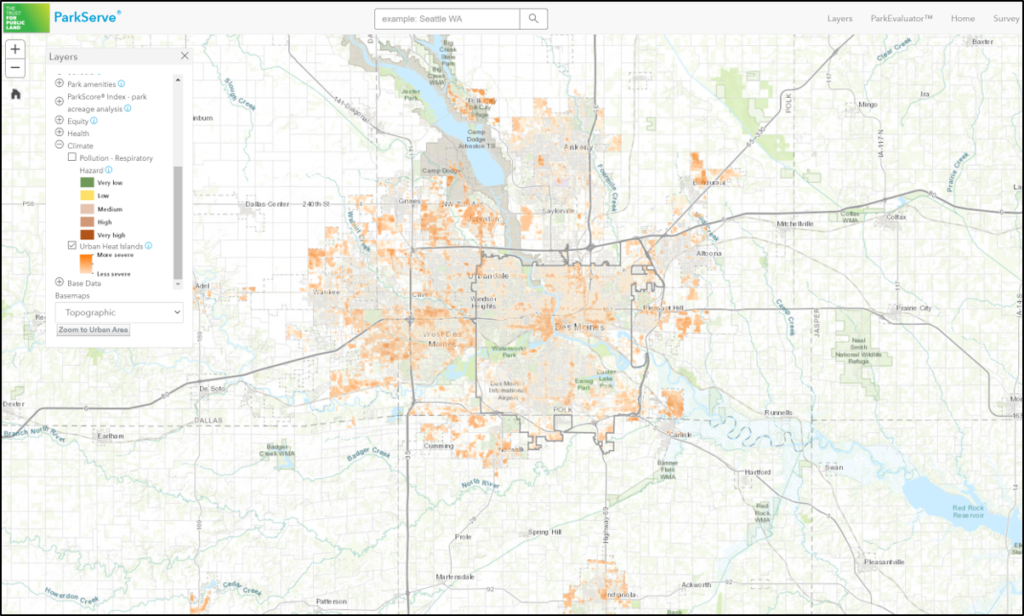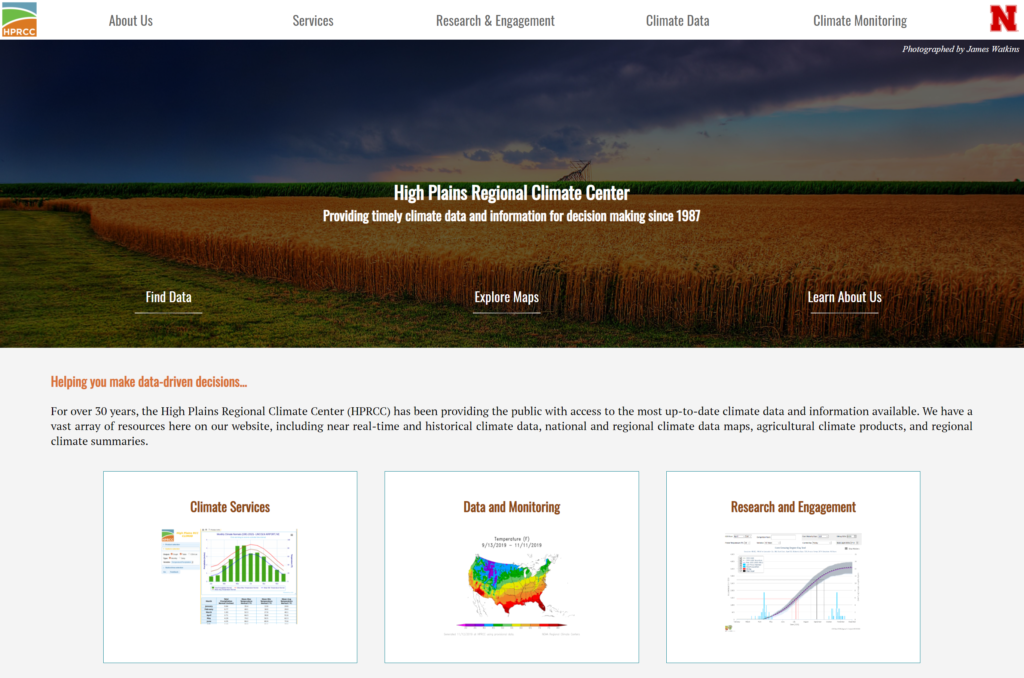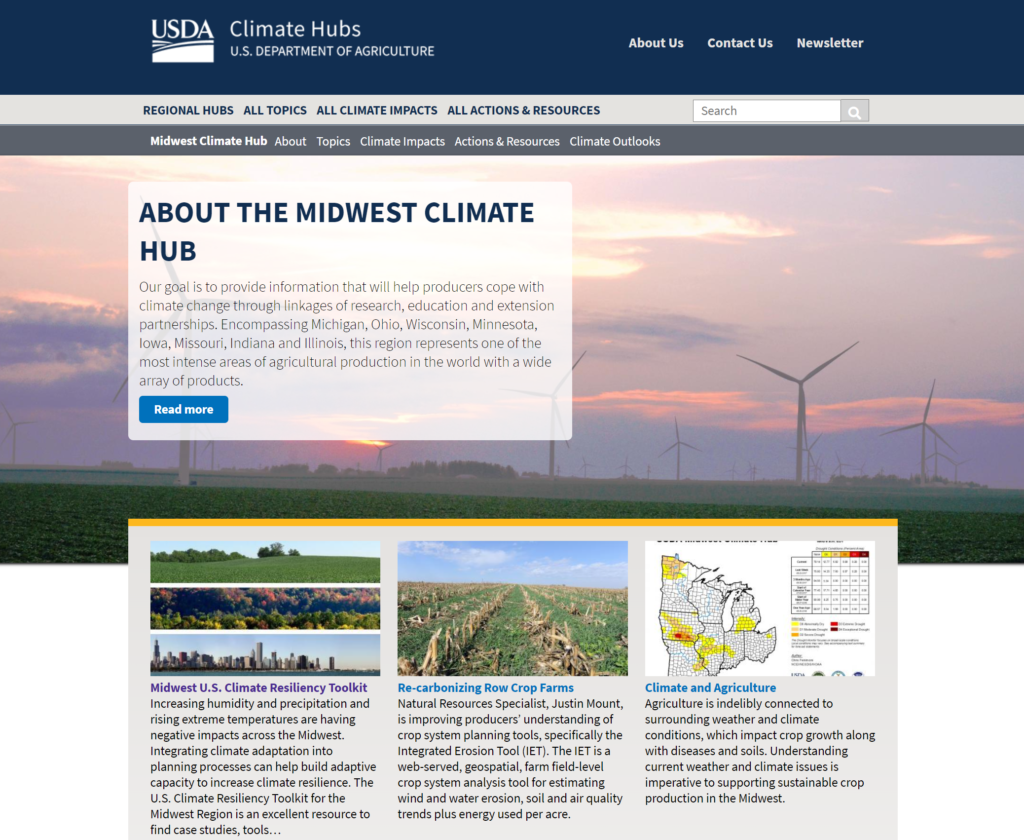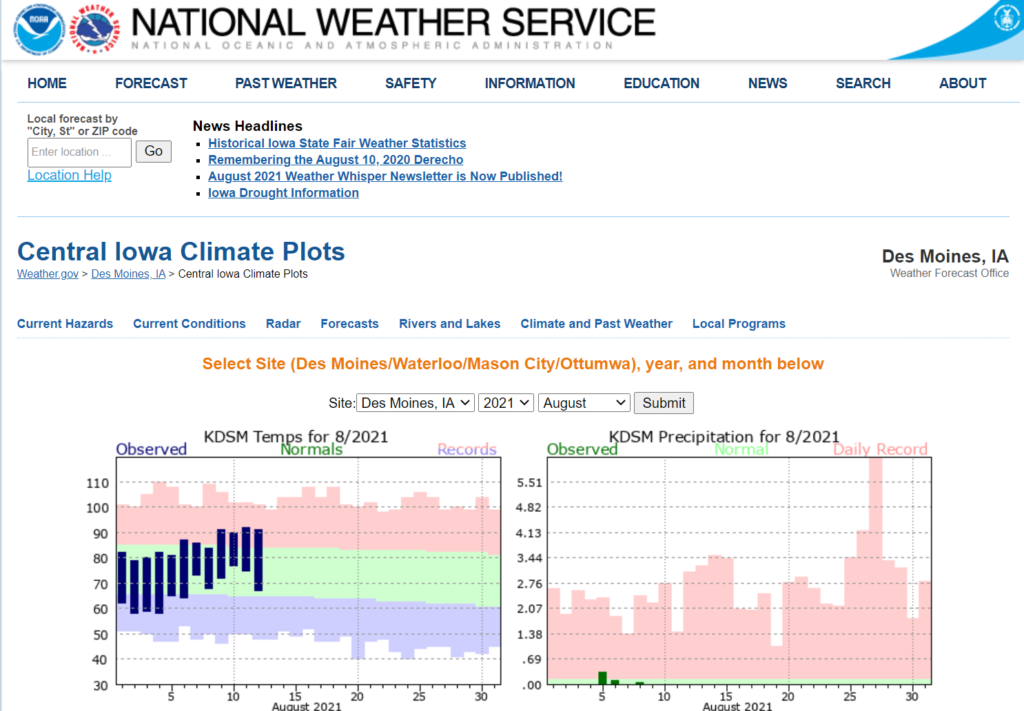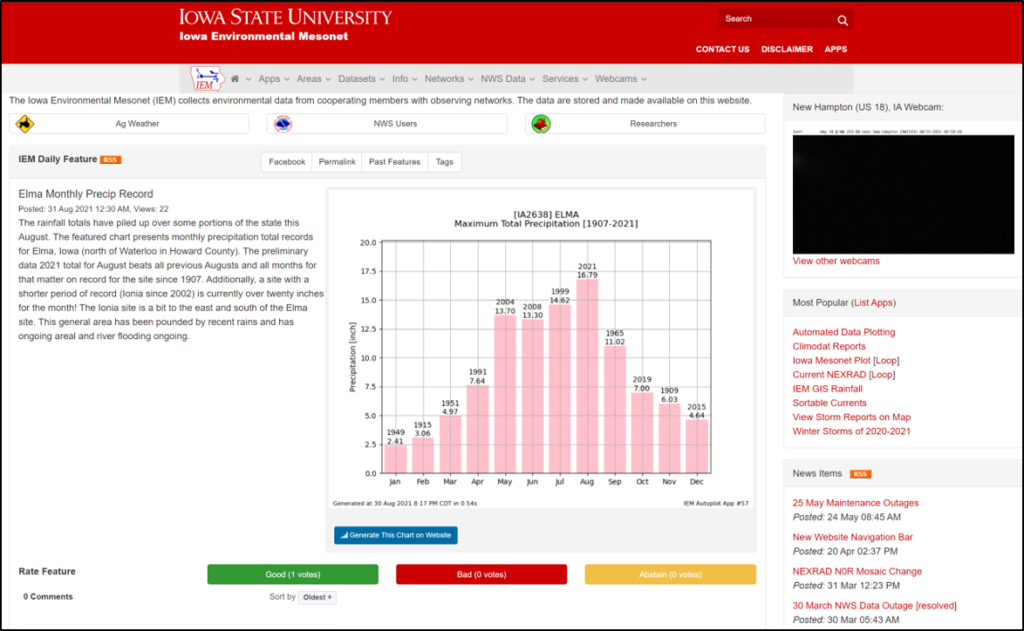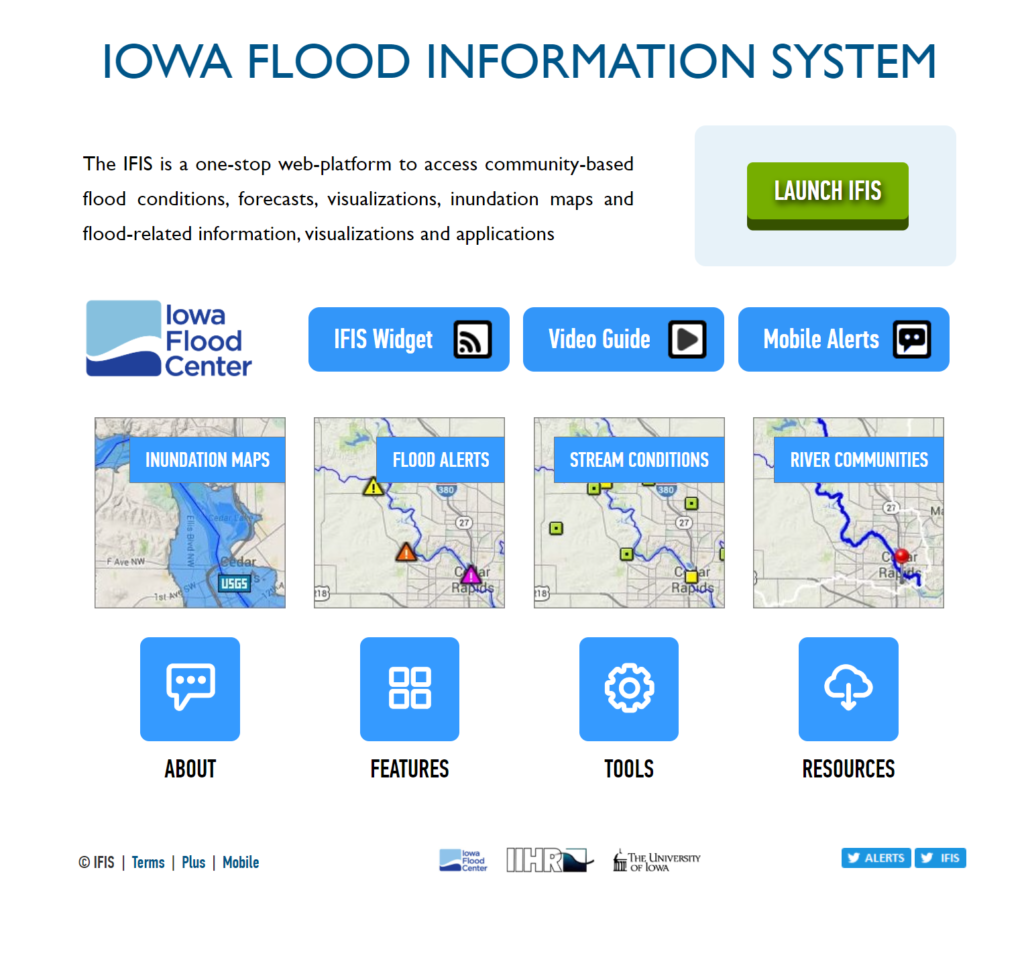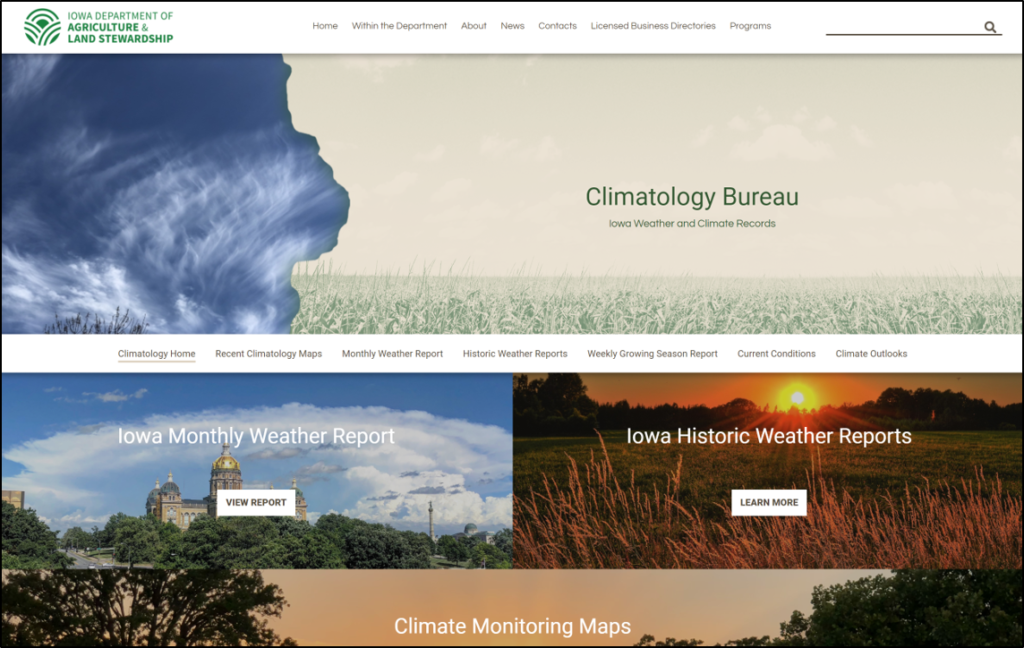In order to know what climate actions a community or organization take, understanding past, current, and future climate conditions is key. Provided below are snapshots and data pertinent to Central Iowa and links directly to some of the foremost climate data sources for ease of access.
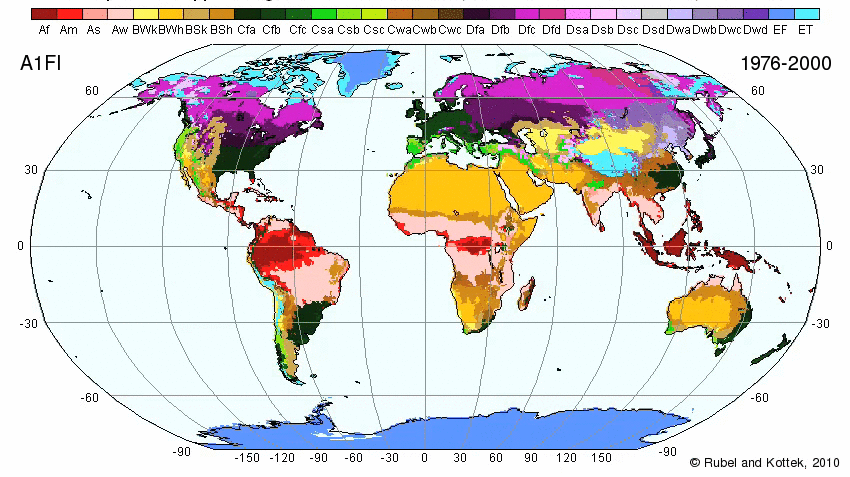
First place to start: what is Central Iowa’s current climate?
According to the Koeppen-Geiger climate classification (above; the most widely recognized classification system), Central Iowa is Dfa or Humid Continental Climate. This is characterized by our classic four seasons, below freezing winter temperatures, hot and humid summers, and precipitation throughout the year. The below projection by climate researchers shows that Central Iowa could shift to the southern edge of Humid Continental Climate by 2100, and closer to the Humid Subtropical climate or Cfa. This indicates hotter and more humid summers, and more mild winters.
To become more precise on future projections, partners at the High Plains Regional Climate Center created Climate4Cities. The research group has created a Sister City Tool map to help identify for communities other cities who currently have their projected climate factors (temperature & precipitation). Below are it’s Sister City projections for the Des Moines metro.
Projections based on lower emissions (4.5 RCP) show the Des Moines Metro’s average annual temperature will be closer to current Chillicothe, MO temperatures by 2100
Projections based on higher emissions (8.5 RCP) show the Des Moines Metro’s average annual temperature will be closer to current Stephenville, MO temperatures by 2100
Climate Data Resources
Climate Assessments
Data, Maps, & Tools
Climate.gov
NOAA’s climate.gov has one of the most extensive catalogs of climate data and projections for the United States. Furthermore, much of the data is interpreted simply for widespread consumption.
Maps & Data
Dataset Gallery
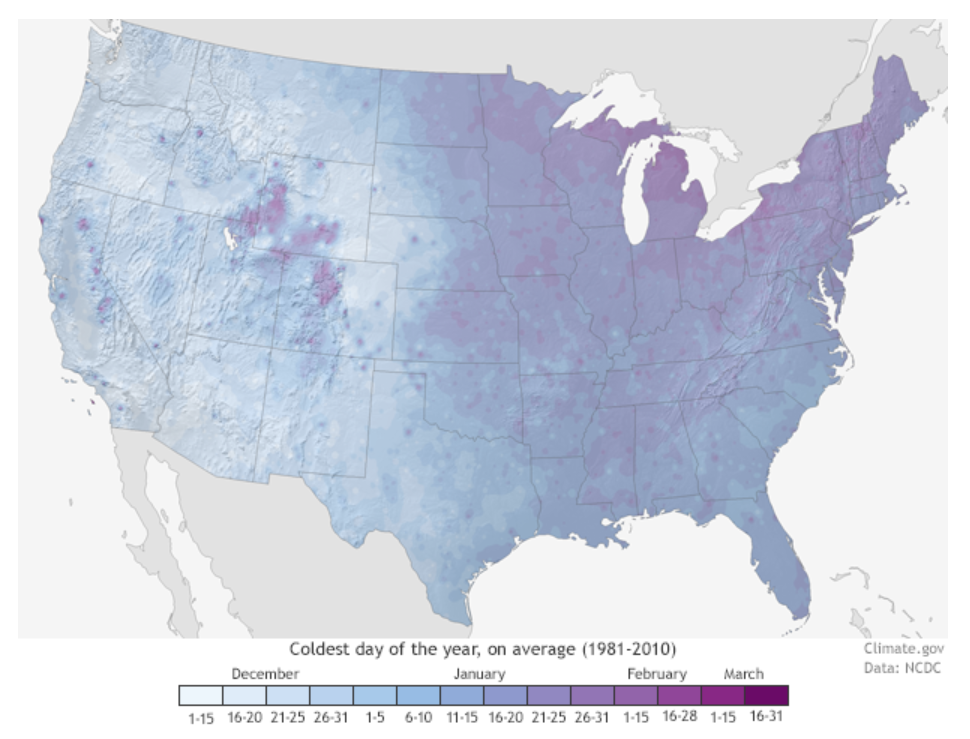
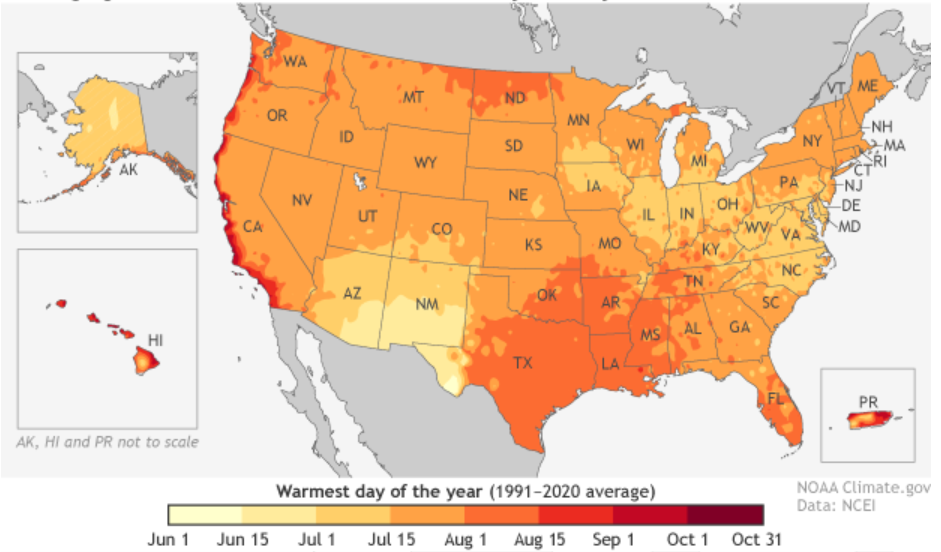
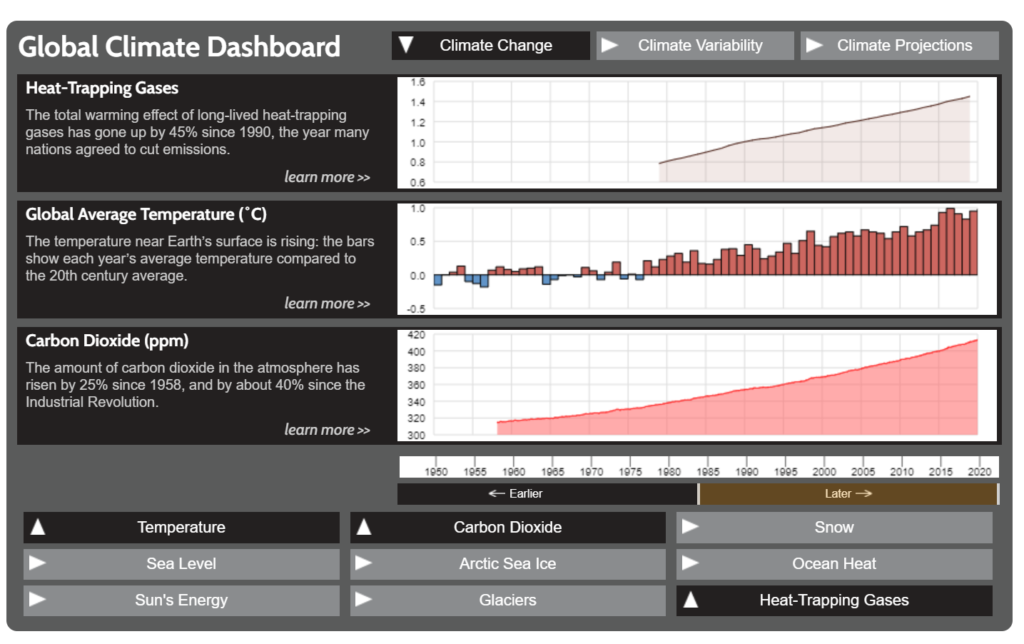
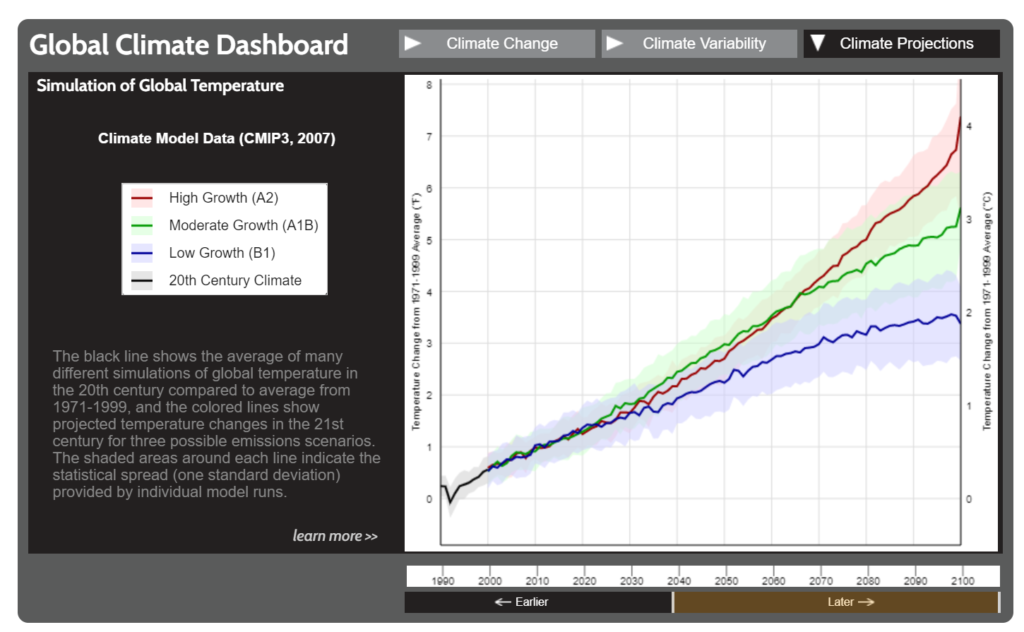
US Climate Resilience Toolkit
The U.S. Climate Resilience Toolkit is a website designed to help people find and use tools, information, and subject matter expertise to build climate resilience. The Toolkit offers information from all across the U.S. federal government in one easy-to-use location.


